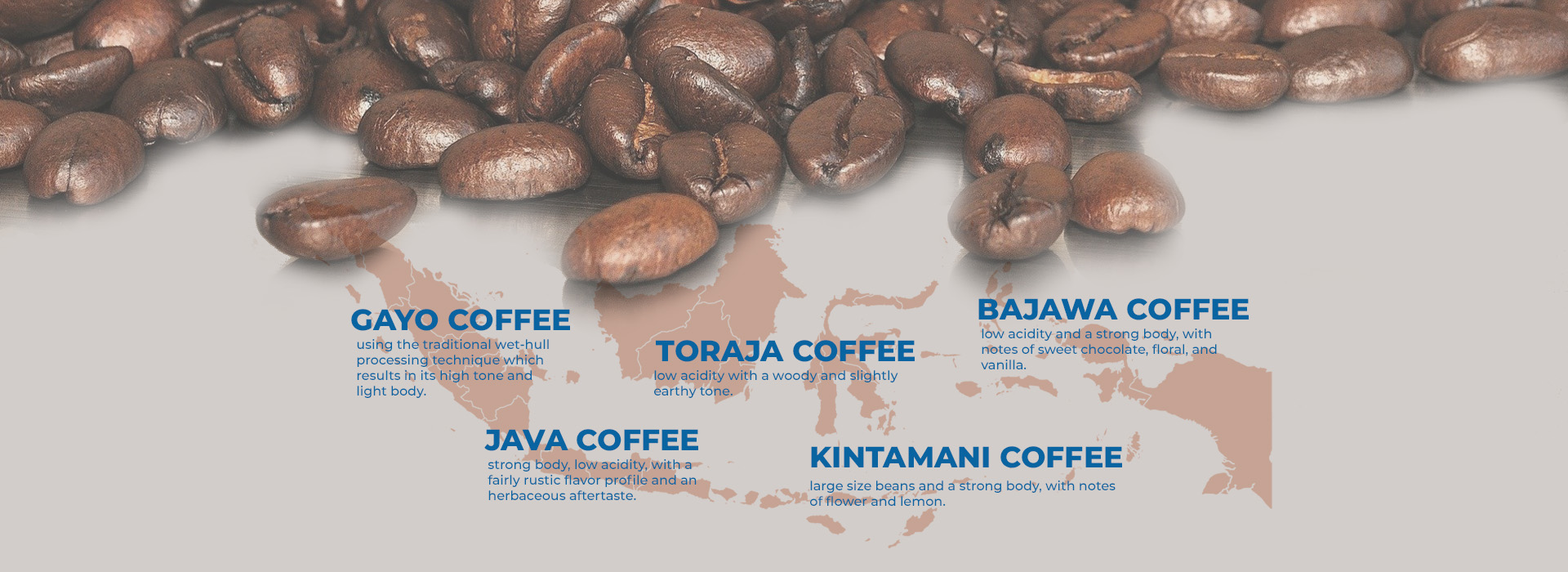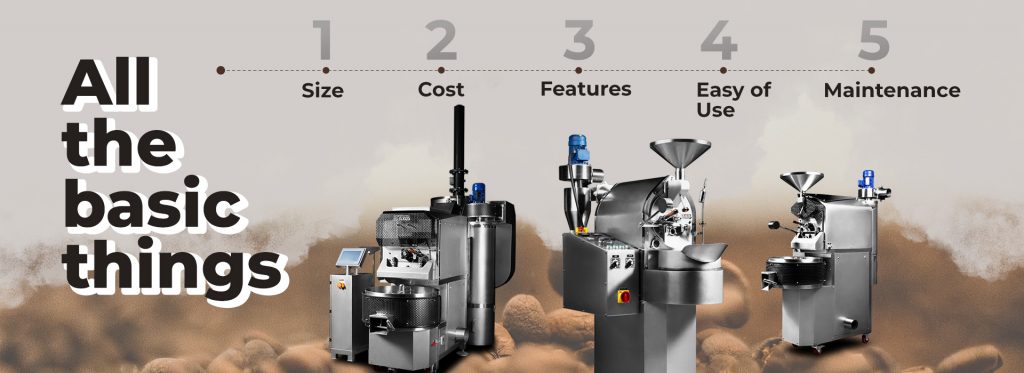Five Popular Indonesian Coffee Beans
Indonesian Coffee At A Glance
During the Dutch occupation in 1699, VOC (Dutch East India Company) brought Arabica coffee seedlings to Indonesia. With the intention of breaking the Arab monopoly in the worldwide coffee trade, they started to cultivate coffee in the Batavia (now Jakarta) area. At that time, Indonesia was the first place outside Arabia and Ethiopia for coffee cultivation. Over time, additional coffee plantations were set up in areas of Java, parts of Sumatera and Sulawesi islands.
Four centuries later, nowadays Indonesia is the fourth-largest coffee producer after Brazil, Vietnam, and Colombia. The coffee beans cultivated were Arabica, Robusta, and Liberica varieties. More than 90% of coffee beans produced in Indonesia are cultivated by small-scale farmers on farms averaging one hectare or less. A lot of the produced coffee beans are organic, and a lot of cooperatives and exporters are internationally certified to sell organic coffee overseas. You can read more about the coffee-producing regions in Indonesia in our previous blog.
The Top Five
Below are five of the most popular coffee beans from Indonesia:
1. Gayo Coffee
Gayo is a region on the hillsides on the northern tip of Sumatera. The coffee grown in this region has a distinctive flavor and a unique taste, which earned the Fair Trade Certification from the International Organization of Fair Trade in 2010 and the nomination as the best coffee in the world at the International Conference on Coffee Science. The coffee beans are grown by small farmers using the traditional wet-hull processing technique which results in its high tone and light body.
2. Kintamani Coffee
The highland region of Kintamani, between the volcanoes of Mt. Batukaru and Mt. Agung, is the main coffee-growing area in Bali. Here the coffee is cultivated with the traditional Subak Abian system which focuses on universal harmony, making it the perfect place to grow fair trade and organic coffee. Kintamani coffee has large size beans and a strong body, with notes of flower and lemon.
3. Bajawa Coffee
The terrain of Flores is rugged, with plenty of volcanoes both active and inactive. The ash from these volcanoes contributes to creating an ideal soil for organic coffee production. Most of the production is grown under shade trees and uses the traditional wet-processing. Bajawa Coffee has low acidity and a strong body, with notes of sweet chocolate, floral, and vanilla.
4. Java Coffee
The earliest coffee plantation was established in West Java by the VOC, focusing on the higher-value Arabica variety. Nowadays, coffee production is centered in Ijen Plateu which is located in East Java, primarily grown in large estates built by the Dutch in the 18th century. Java Coffee characteristics are strong body, low acidity, with a fairly rustic flavor profile and an herbaceous aftertaste.
5. Toraja Coffee
Toraja Highlands in Sulawesi is the primary region for high-altitude Arabica production. Most of the coffee production in Sulawesi is grown from smallholders with a strong sense of tradition, including in coffee processing. Their wet-hulling process results in coffee beans that are multi-dimensioned and full-bodied. Toraja Coffee has low acidity with a woody and slightly earthy tone.
Looking Ahead
Indonesia still exports most of its coffee beans production. But in the past decade, the country’s consumption of coffee is on the rise, and it’s predicted to continue well into the coming years. Due to new interest from the younger generations, coffee is now a lifestyle, particularly in the flourishing middle class in urban areas. This growing coffee culture is also a sign of economic progress.
Along with this increasing demand, hundreds of independent coffee shops and coffee roasters popped up across the archipelago. A significant number of these are specialty roasters and artisanal coffee shops particularly in Jakarta and Bali, that focus on local, single-source beans from all over Indonesia. These enterprises buy local coffee beans and build strong relationships between producers and roasters as well as loyal customers, with the result of elevating the single act of drinking coffee into an enjoyable communal and social experience.


